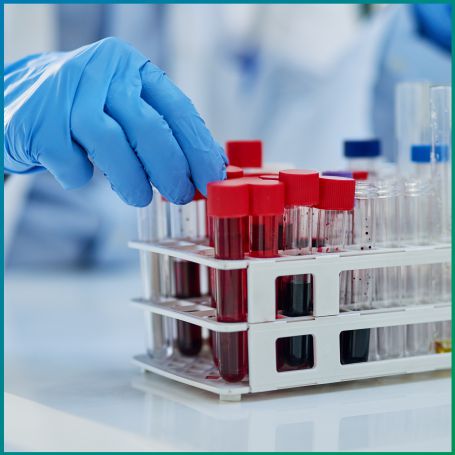
Alpha-1 Antitrypsin (AAT) is a crucial protein produced by the liver, playing a significant role in protecting tissues, especially the lungs, from enzyme damage.


When AAT levels are insufficient or dysfunctional, it can lead to serious conditions like COPD (Chronic Obstructive Pulmonary Disease), liver disease, and panniculitis (a rare skin condition). The condition causing this is known as Alpha-1 Antitrypsin Deficiency (AATD).
Alpha-1 Antitrypsin (AAT) is a protein primarily produced in the liver. Its main function is to protect the lungs and other tissues from enzymes like neutrophil elastase, which can break down tissue if not properly regulated. Without adequate levels of AAT, these enzymes can cause severe damage, leading to conditions such as emphysema and liver cirrhosis.
The primary function of Alpha-1 Antitrypsin is to inhibit neutrophil elastase, an enzyme that breaks down harmful bacteria but can also damage the lungs and other tissues if not regulated. AAT helps maintain a balance between necessary enzyme activity and tissue protection.
Alpha-1 Antitrypsin Deficiency (AATD) occurs when the body is unable to produce enough of the functional AAT protein. This can lead to a variety of health problems, primarily affecting the lungs and liver.
Alpha-1 Antitrypsin Deficiency Symptoms
The symptoms of Alpha-1 Antitrypsin Deficiency can vary, depending on the organs affected. These include Respiratory Issues: Difficulty breathing, shortness of breath, and wheezing are common symptoms that may lead to COPD or emphysema, Liver Disease: Alpha-1 Antitrypsin Deficiency can cause liver problems such as jaundice, liver cirrhosis, and liver failure, Panniculitis: A skin condition characterized by painful lumps and inflammation of the skin tissue.
Treatment for Alpha-1 Antitrypsin Deficiency focuses on managing symptoms and preventing further damage to the lungs and liver. Common treatments include AAT augmentation therapy: Regular infusions of Alpha-1 Antitrypsin protein to maintain proper levels in the blood, Lung treatments: Bronchodilators and inhaled steroids to improve breathing and reduce inflammation, Liver management: Monitoring liver function and, in severe cases, liver transplant may be considered.
You should choose Diagnopein for your ALPHA 1 ANTITRYPSIN TISSUE test because we are committed to providing high-quality diagnostic care in a clean and hygienic environment. Our center is equipped with advanced technology to ensure accurate and reliable test results, which are crucial for assessing this test. Diagnopein’s experienced staff is dedicated to handling tests with precision and care, offering you both expertise and comfort. We also offer affordable pricing, making essential health diagnostics accessible without compromising quality. For timely, professional, and affordable cardiac testing, Diagnopein is your trusted partner for your healthcare.
Alpha-1 Antitrypsin (AAT) is a protein produced by the liver that helps protect the lungs and other tissues from damage caused by enzymes like neutrophil elastase.
Low levels of AAT can lead to lung diseases such as COPD and emphysema, as well as liver diseases like cirrhosis.
The normal range for AAT in the blood is between 0.9-2.0 g/L. This range may vary slightly depending on the laboratory conducting the test.
Symptoms include shortness of breath, chronic cough, wheezing, and liver problems like jaundice and abdominal swelling.